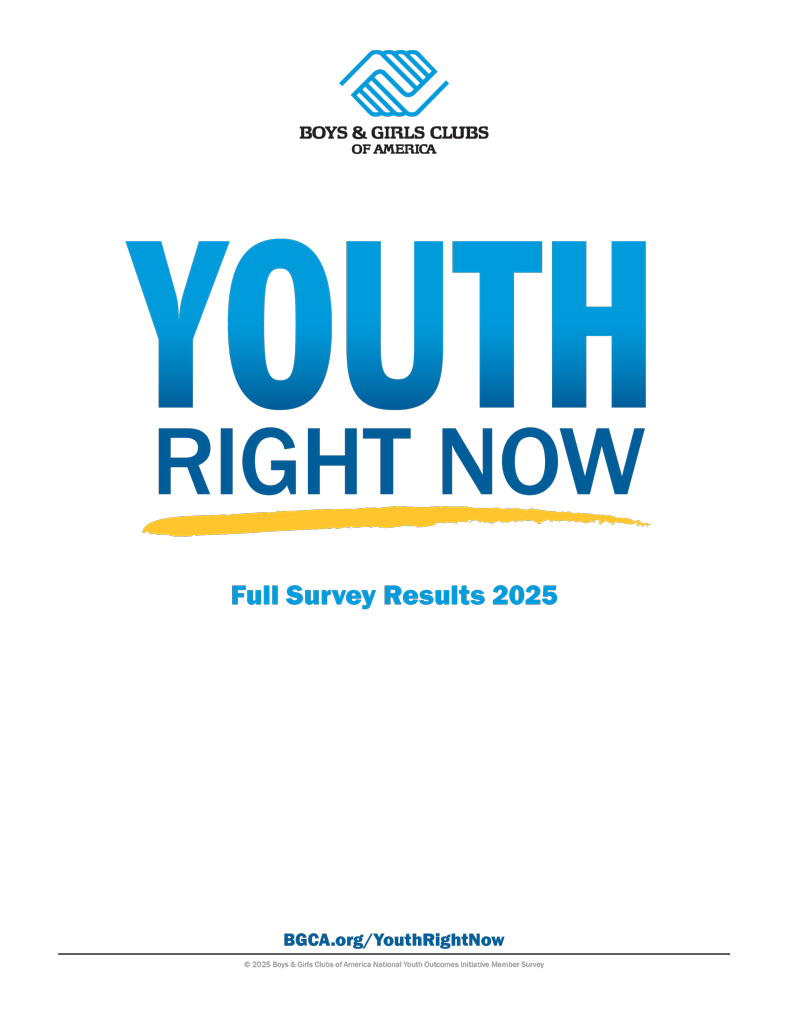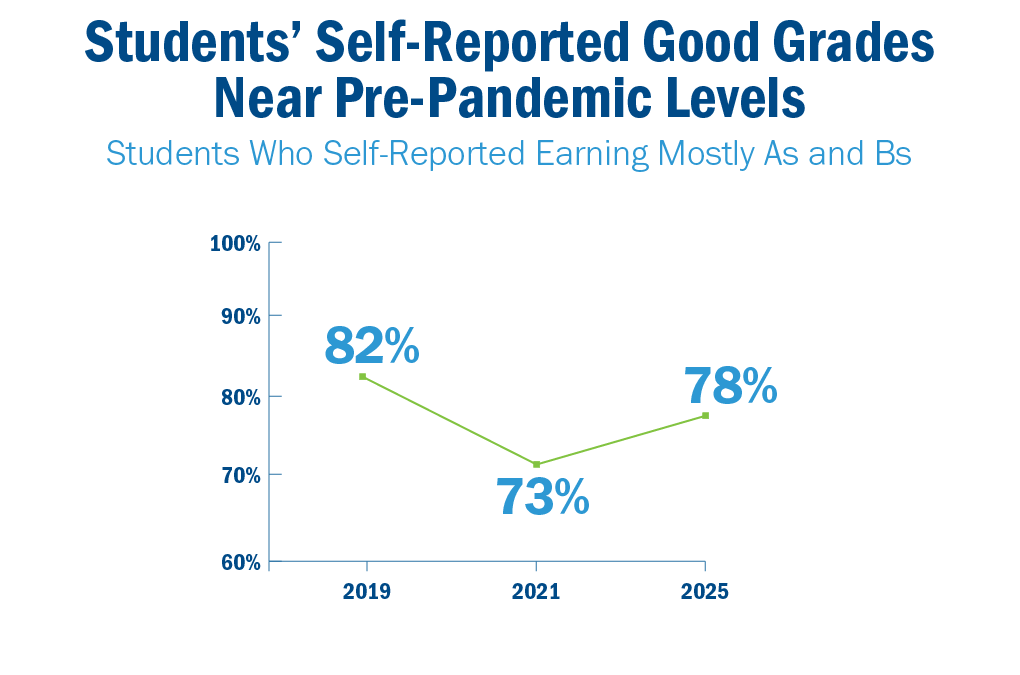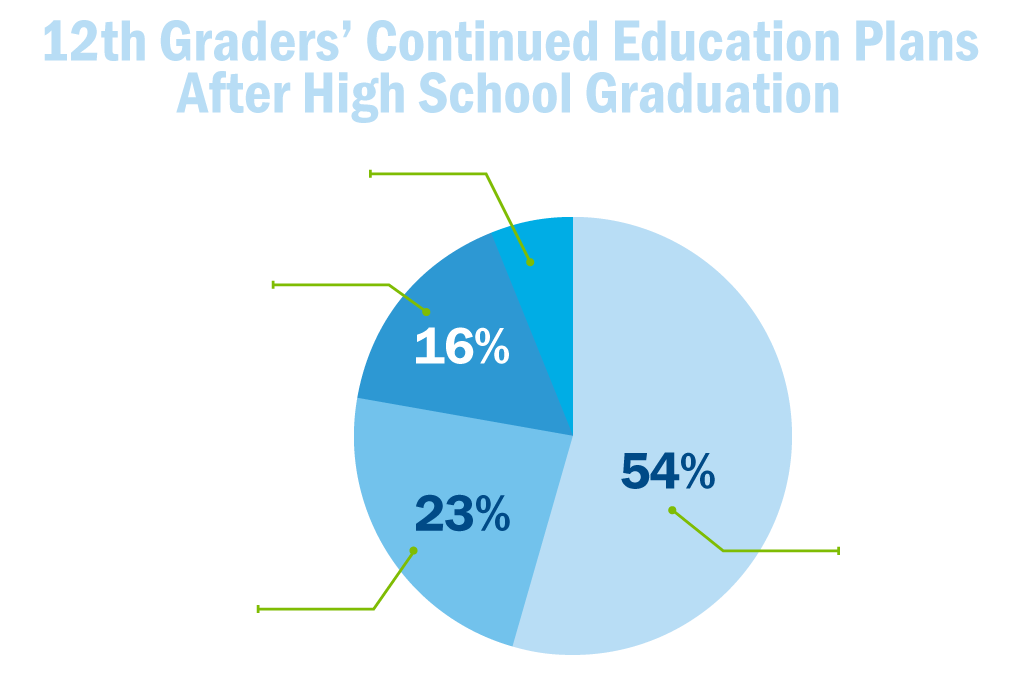
America needs Club Kids.
Outside of school, Club Kids are safe, active and learning — on their way to becoming our future scientists, doctors and public servants.
Tomorrow’s Leaders are at Boys & Girls Clubs. Help more youth discover their greatness.
Explore the full survey results. |
 |
About Youth Survey Respondents


Key Takeaways
Five years post-pandemic, students are showing gradual academic recovery. Teens are also building strong life skills and exploring higher education along with alternative life paths.
40% of youth have gotten into a fight in the past year. However, youth are also showing strong moral values. 78% say they do what’s right, even if no one is watching.
Five years after the pandemic, academic performance has gradually improved as students continue to get back on track in school.

Spotlight on Plans After High School
In making post grad plans, high school seniors are looking at a variety of options. 63% said they plan to enroll in more school. Of those, three-quarters (77%) aim to earn a four-year college degree or higher.


Spotlight on Teens
Teens are feeling equipped for adulthood, including preparing for college, future careers and adult responsibilities.


Young people are putting effort into school and exploring careers. They’re also striving to create a more inclusive world and taking positive action in their community, with 77% of youth saying they can stand up for what they think is right, even if their friends disagree.
ACADEMIC SUCCESS
Character & Leadership
Health & Well-being
Workforce Readiness
Some of the challenges facing young people center around having trouble managing relationships with their peers, including open communication and conflict resolution. Meanwhile, a third of high school students strive to be the first in their families to go to college, signaling the need for post-secondary education resources and support to be within all students’ reach.







